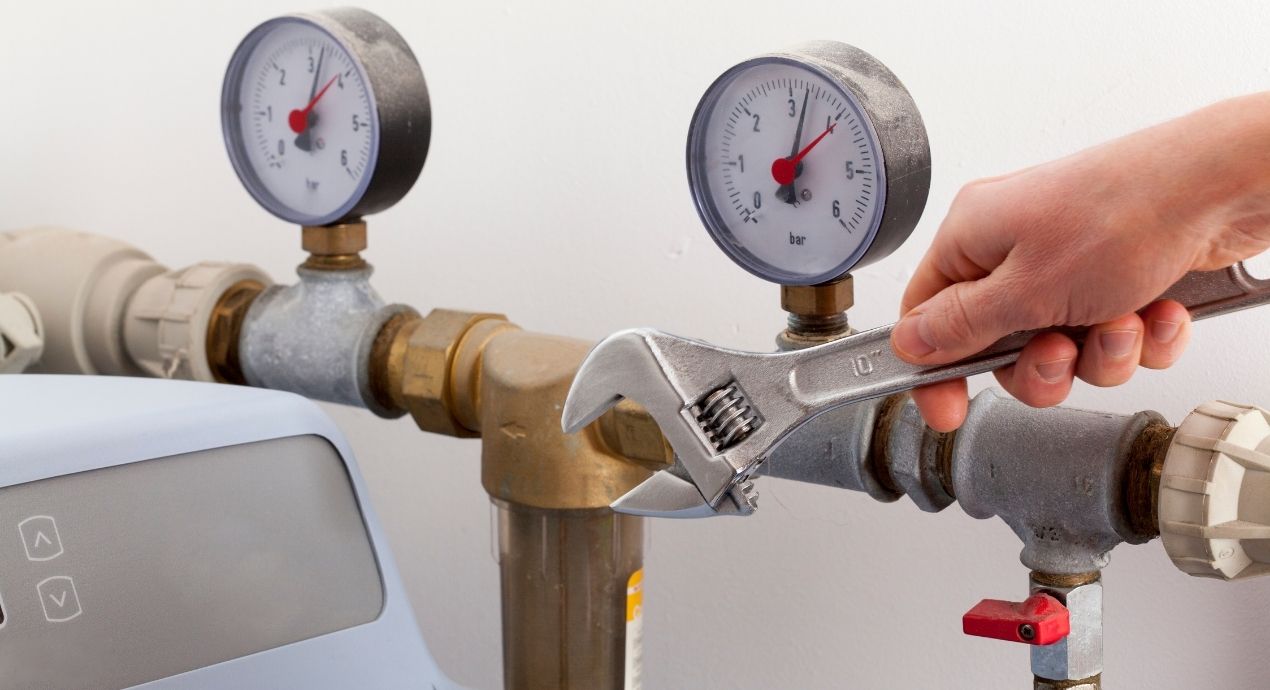
Contemplating coverage?
Subscribe to receive our emails & get
$200 OFF!
Have questions?
Call us: (833) 544-8273


Written By Erin Easley
Your water softener is one of the most important appliances in your home. It’s constantly working behind the scenes to ensure that the water that flows from your faucets and into your appliances has the optimal level of minerality. Some people may not be able to articulate the difference between hard and soft water, but if the water in their home was exceptionally hard, they would know something was wrong.
In this post, we’ll quickly review what a water softener system is and why it’s necessary for most modern homes. We’ll also share some important tips to help you know how to maintain your water softener.
The mineral content in water affects how it feels and how it interacts with other substances. Hard water is water with a high level of dissolved minerals, such as calcium, magnesium, potassium, iron, and so on. Soft water has a lower level of minerality.
Rainwater is naturally soft. As water evaporates into the atmosphere, comparatively heavy minerals remain on the ground. When rain falls and passes into the water table, wells, and reservoirs, it acquires minerals from the soil. By the time the water reaches our home plumbing, it’s harder than we would like.
Hard water is undesirable for several reasons. It causes our laundry to look dirty and dingy, and it leaves a residue on our plates, glasses, and silverware. It aids in mineral and scum buildup in our bathrooms, and it makes it more difficult to lather a bar of soap. Hard water is also harsher on our plumbing and on appliances that use water, such as dishwashers, washing machines, and refrigerators.
A water softener uses salt to initiate ion exchange. This removes some (not all) of the minerals from the water, making the water softer.
Keeping your water softener in good condition will extend its life and limit the risk of expensive repair, but a healthy water softener will also keep your plumbing and other appliances that draw water in good shape. Here are some tips to consider.
Replenish salt when necessary. A water softener salt tank needs to be replenished periodically. This could be every couple of weeks or every few months. The frequency of refilling depends on the size and type of your appliance and the quality of your home’s untreated water.
Use high-quality salt. There are different salts available for your home water softener. Rock salt is cheapest, but minerals and other impurities can lead to clogs and salt bridges. Solar salt is a better option, but the best is evaporative salt. This is a purer form of salt that is less likely to cause a buildup inside your softener.
Check for salt bridges and salt mushing. A salt bridge is a hardened layer of salt that can form above a water softener’s water level. It prevents salt from mixing with the water, effectively rendering your water softener useless. Salt mushing is sort of the opposite problem. Salt can gather at the bottom of the tank instead of dissolving in the water. Sometimes, knowing how to fix water softener system issues is just a matter resolving one of these problems. Fix a salt bridge by using a broomstick to break it up and mix the salt with the water. If you notice salt mushing, you should drain your tank of water, dig out and discard the mushy salt deposit, refill the tank with water, and add fresh salt.
Use a water softener cleaner. Your water softener should be cleaned every so often. Water softener cleaners are cheap and widely available. Apply them every three or four months to keep your system from being overtaxed by mineral buildup. It’s often just a matter of dumping the cleaning solution into the tank, but the product’s instructions will explain how to use water softener cleaner.
Perform manual cleanings and maintenance. Finally, you’ll want to manually clean your softener from time to time. This should be yearly for older appliances, but modern softeners can go five years or more between cleanings. It’s also a good idea to loosen and retighten any valves. Mineral deposits can accumulate on the valves and threads, making them difficult to open when you or a repairperson needs to.
An unfortunate reality is that home appliances and systems can still malfunction even when we stay on top of their maintenance. If you don’t want to risk paying out of pocket for an expensive repair job, you can find water softener warranty coverage through Liberty Home Guard. We’ll cover all mechanical components and parts related to the unit’s functionality.
Use our website for a free quote or call (866)-699-4589.
Stay Ahead of Potential
Home Mishaps!
Subscribe to our Liberty Home Guard Newsletter and gain access to exclusive content that ensures your peace of mind.